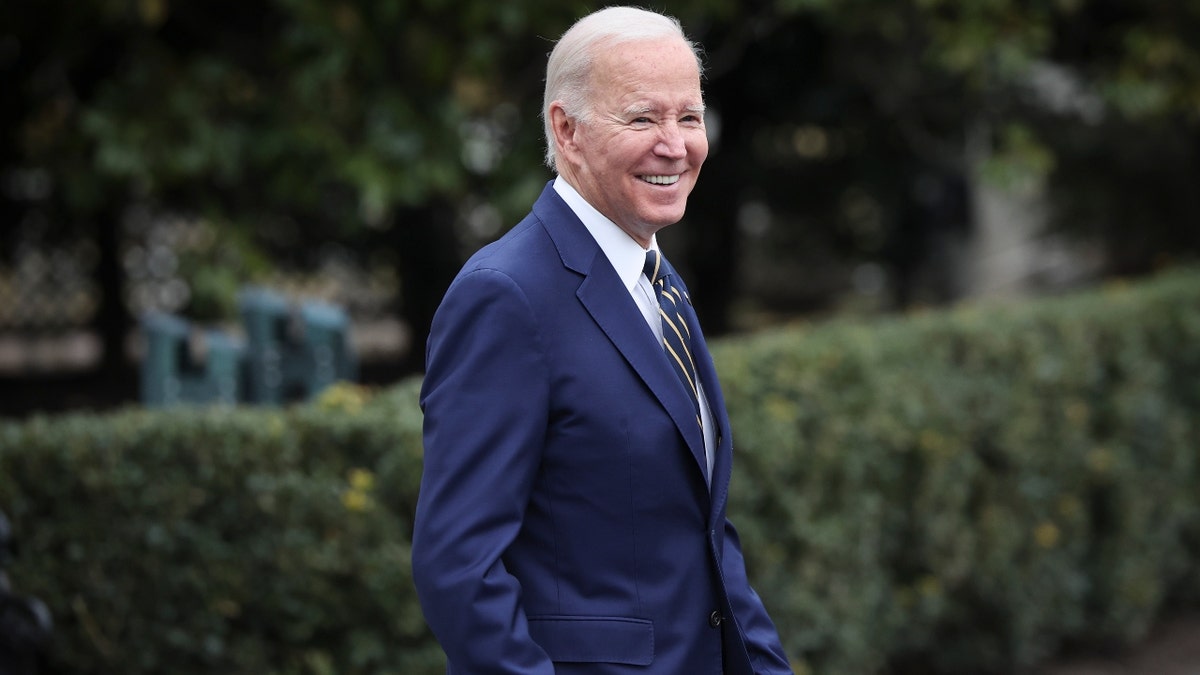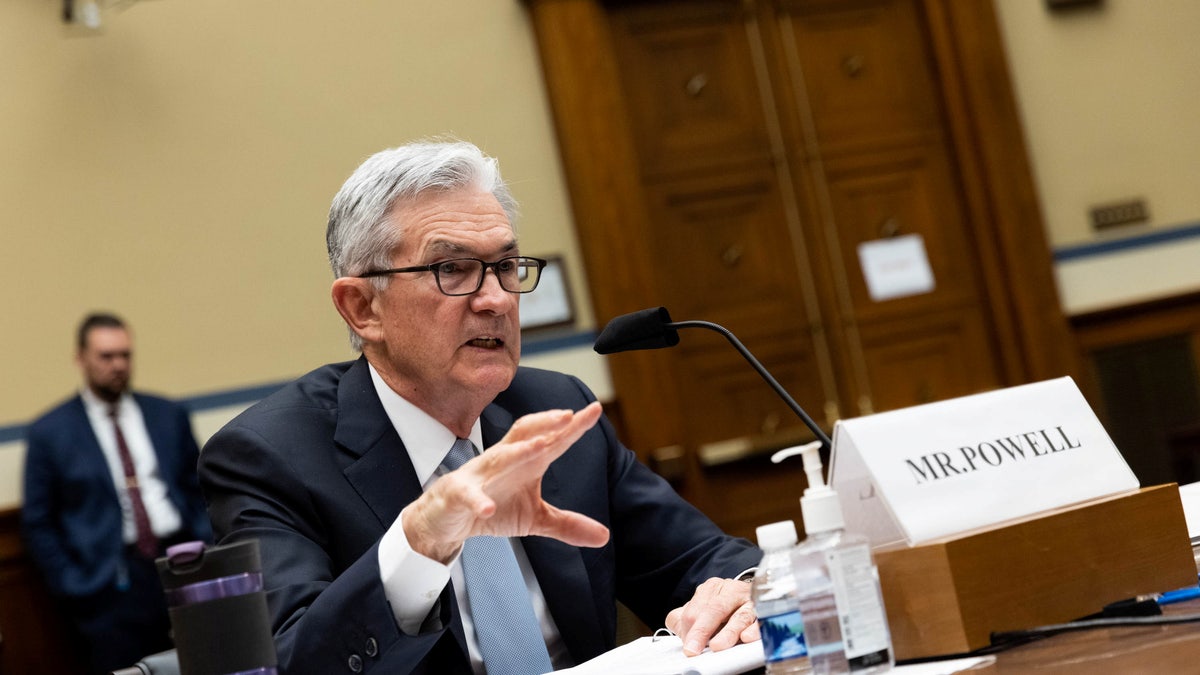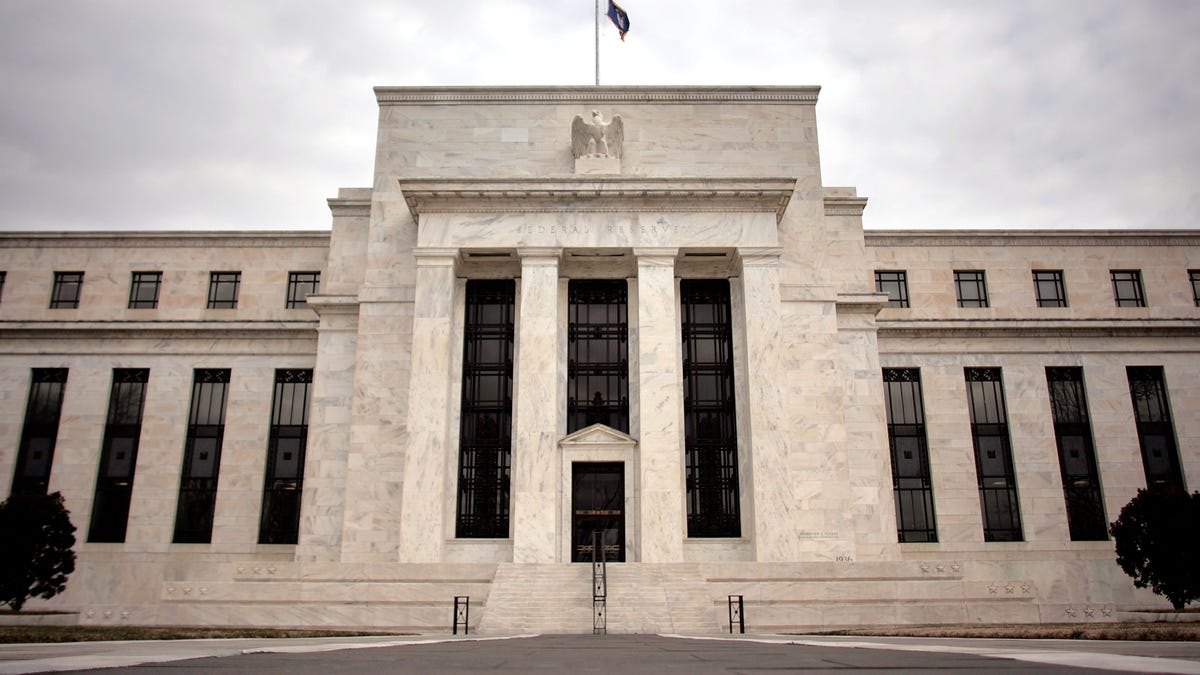Virtual currency is virtually unregulated, compelling Congress to act: Chad Pergram
Fox News senior congressional correspondent Chad Pergram details the new House Subcommittee on Digital Assets tasked with studying cryptocurrencies and regulations on 'Fox Report.'
Under the leadership of President Joe Biden, the White House and the Federal Reserve have started to lay the groundwork for a programmable, trackable, easily manipulated digital currency. It might sound like something from a dystopian science-fiction novel, but it’s all too real, and it could soon change life in America forever.
In March 2022, the Biden administration released a sweeping executive order that directed numerous federal agencies to crack down on digital assets, including on popular cryptocurrencies, as well as to study the potential development of a central bank digital currency (CBDC).
A CBDC would not be a digital version of the existing paper-based dollar, but rather an entirely new currency that would exist exclusively in a digital (meaning an electronic, non-physical) form.

President Joe Biden departs the White House on Jan. 19, 2023. (Win McNamee/Getty Images)
In September 2022, the White House announced the completion of the CBDC reports. Although the administration did not officially propose a CBDC following the release of the reports, it did announce that it had developed "policy objectives" for a U.S. CBDC system.
BIDEN RULE WILL REDISTRIBUTE HIGH-RISK LOAN COSTS TO HOMEOWNERS WITH GOOD CREDIT
Biden also directed the leadership of the National Economic Council, National Security Council, Office of Science and Technology Policy and the Treasury Department to "meet regularly" with the Federal Reserve to further design a potential CBDC.
Since the flurry of action in September, the administration has worked tirelessly – and quietly – to advance the creation of a CBDC, through various working groups, speeches and coordinated efforts with non-government groups.
Under the various CBDC proposals floated by the Biden administration and Federal Reserve, a U.S. CBDC would be programmable, traceable and designed to promote various left-wing social goals, such as improving "financial inclusion" and "equity." It would also be designed to help with "transitioning to a net-zero emissions economy and improving environmental justice."

Federal Reserve Chair Jerome Powell testifies during a U.S. House Oversight and Reform Select Subcommittee hearing on Capitol Hill, June 22, 2021. (Graeme Jennings/Pool via Reuters)
Unlike with decentralized cryptocurrencies, such as Bitcoin, every transaction made using a CBDC could be easily traced to individual users by financial institutions, government agents and/or the Federal Reserve (depending on the details of the final design).
Additionally, because a CBDC would be digital and programmable, rules could be imposed that limit spending on approved activities. So, if the federal government or Federal Reserve were to determine that Americans are buying too much gasoline, for example, it could stop people from using CBDCs at gas stations with a few clicks on a computer.
Perhaps most disturbing of all, however, is that under most of the CBDC designs discussed by the Biden administration and Federal Reserve, nearly all forms of ownership of CBDC money would also be strictly limited. Only large institutions such as banks, the federal government, and/or the Federal Reserve would actually have ownership of CBDCs. Everyone else would be prevented from having absolute control over their digital money.
That means in Biden’s future, you will not own CBDC money, and you’ll have no privacy either.
How, exactly, would the Biden administration prevent most forms of private ownership of digital money? To best understand the answer to that question, you first need to know important details about the existing banking system.
Currently, when you go to the bank and deposit money into a checking or savings account, you immediately cease to own the money. The cash becomes the property of the bank. In most situations, the bank is required to return the money you provided to it at your request, but the cash ultimately belongs to the bank until you remove the money from your deposit account.
Under the current system, there is a way to regain control of your money, by withdrawing cash from a deposit account, and privacy laws prevent banks in many situations from giving away details about your financial accounts to third parties, including the government.
But because CBDCs would only exist in digital form in a deposit account, and because they would be programmed to feed data to government, there would be no way for you to physically take CBDCs out of a depository account, store them privately, own them directly, or use them without being surveilled by a large institution.
The Biden administration has directly acknowledged that a future where you don’t own CBDCs is exactly what it and the Federal Reserve are now considering. For example, in a 2022 report about CBDCs, the Treasury Department stated, "There are two general architectures for CBDC intermediation: (1) a single-tier (i.e., direct) CBDC with the central bank, and (2) a two-tier CBDC where intermediaries (potentially banks or nonbank financial intermediaries) would onboard and manage payments while the central bank records account balances."
CLICK HERE TO GET THE OPINION NEWSLETTER
In other words, there’s no scenario in which you would be able to store your digital money in a local hard drive or private storage account. All of your money would be kept by a bank or the Federal Reserve directly, which means they would own all of your CBDC money.

The Federal Reserve building in Washington, D.C., on Jan. 22, 2008. (Chip Somodevilla/Getty Images)
Regardless of where your CBDCs are held, it’s likely the federal government would have access to data about your purchases and other information – a design choice CBDC supporters say is necessary so that officials can limit criminal activity. The only significant privacy questions that remain in the minds of those who support CBDCs are about the extent of the data collection.
For example, Biden’s under secretary for domestic finance, Nellie Liang, explained in a March 2022 speech about CBDCs that "one way of reconciling privacy with illicit finance concerns in a retail CBDC might be to have a tiered structure in which less data are collected for small dollar transactions or small volume accounts."
CLICK HERE TO GET THE FOX NEWS APP
Note that Liang says "less data" "might" be collected for small dollar accounts. She doesn’t say no data will be collected.
If a programmable CBDC is rolled out in the near future, you won’t own money and you’ll have very little privacy, if any at all. That’s great news for those who advocate for bigger government and want more power for large financial institutions, but it could prove to be a catastrophic loss of freedom for the rest of us.












































